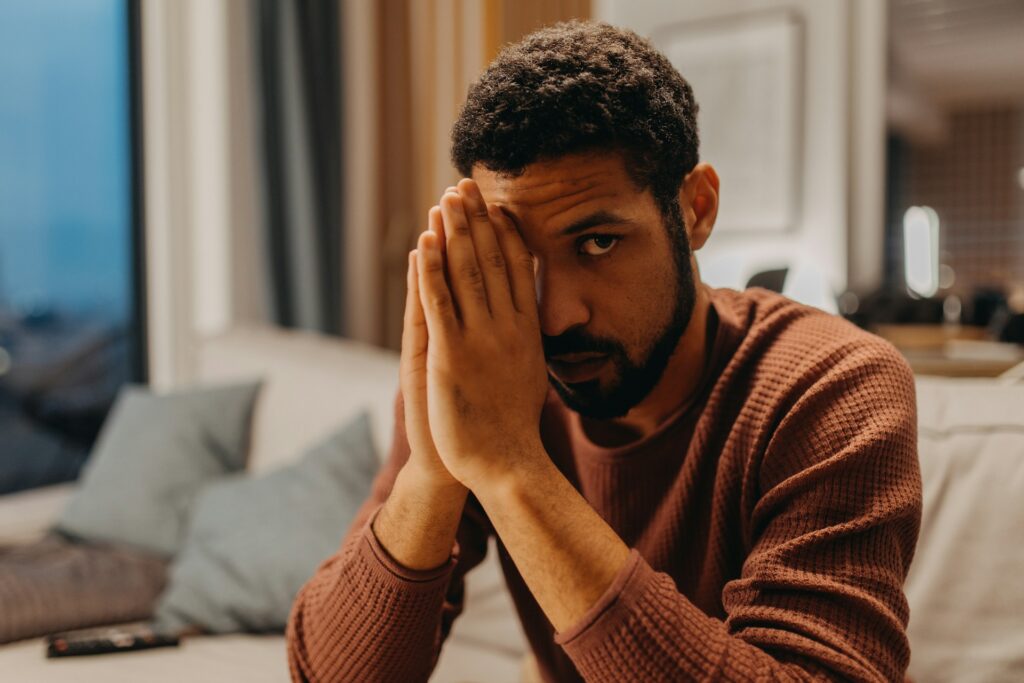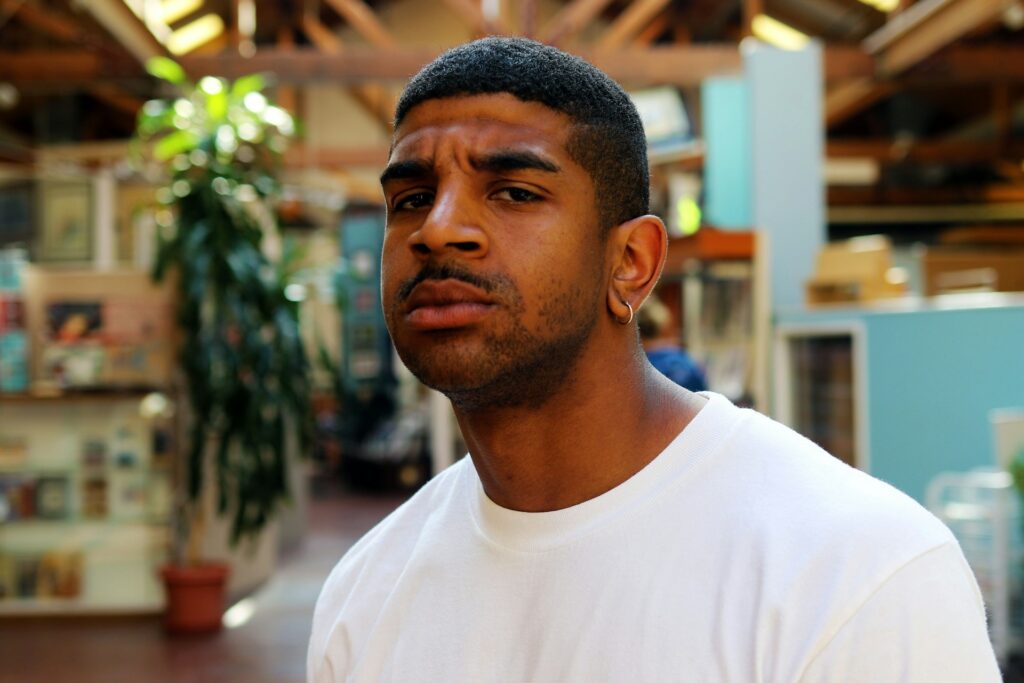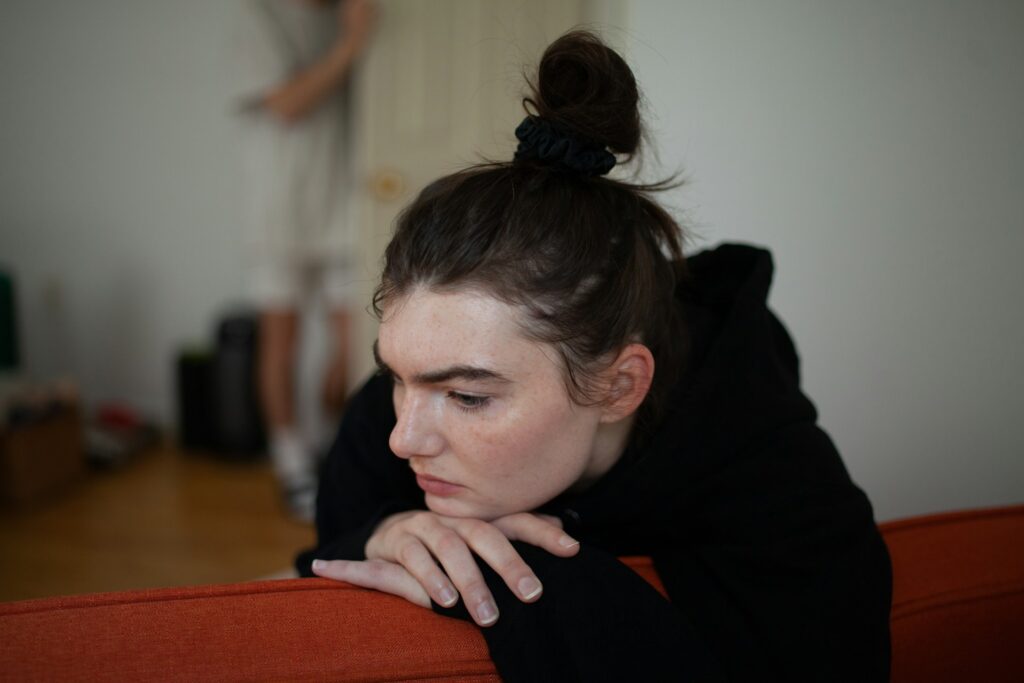People have an idea of what loneliness looks like, but if actually manifests in all kinds of ways.

A lot of the time, it’s hidden behind offhand comments, casual deflections, or overly rehearsed independence. People who feel isolated often go out of their way to make sure no one notices, especially because admitting it can feel like failure, weakness, or just too raw. These are some of the subtle things lonely people say when they’re trying to cover how disconnected they really feel.
1. “I’m just really busy right now.”

It sounds productive and put-together, but a lot of the time, “busy” is code for “I don’t know how to ask for connection.” It gives them a way to avoid questions without sounding sad. They’re not lying; they might really be filling their time with tasks or distractions. However, underneath it is often a feeling of being left out or forgotten.
2. “I like doing things on my own.”

There’s nothing wrong with enjoying your own company, but when this becomes a go-to line, it can mask a deeper reality. Sometimes it’s said to make solitude sound like a preference, not a struggle. It’s easier to pretend you’ve chosen isolation than to admit no one’s choosing you right now.
3. “I’m terrible at keeping in touch.”

This one often comes with a laugh, like it’s a personality quirk. But for a lot of lonely people, it’s more about shame or fear of being forgotten than poor memory. It can feel safer to blame yourself for the silence than to risk admitting you feel disconnected, and wish someone would check in.
4. “I’m just laying low these days.”

Said like it’s intentional, like it’s a calm season of rest or recharge. Of course, sometimes, “laying low” really means “I haven’t been invited anywhere, and I don’t know how to change that.” It becomes a way of saving face, a soft deflection that keeps the truth out of reach. They likely would very much enjoy having a fuller social calendar.
5. “Everyone’s just doing their own thing lately.”

This one’s often said with a shrug, but it stings a little. It can mean “I’m not included anymore” or “I’m watching everyone live full lives while I sit on the sidelines.” Instead of saying they feel left behind, they neutralise it with this passive line. It sounds like observation, but it’s often a feeling of deep-seated grief.
6. “I’m used to it.”

A phrase that sounds strong on the surface, but usually covers up resignation. People say it when they’ve gone long enough without connection that it starts to feel normal, even if it still hurts. It’s not pride. It’s adaptation. And it’s a sign that someone’s been sitting with loneliness for longer than they’re letting on.
7. “I don’t really like people that much.”

Sometimes this is said half-jokingly, as if being antisocial is a cool quirk. However, more often, it’s a shield. It’s easier to act detached than to admit you want closeness and don’t know how to get it. This line protects people from rejection before it even has a chance to happen. Is it possible they really don’t like people? Maybe, but more likely they’re just craving connection.
8. “I’ve just been focusing on myself.”

There are times when this is completely true and healthy. But other times, it’s a way to reframe isolation as self-development. It sounds proactive—but sometimes it’s a mask for feeling overlooked or disconnected. It becomes a more socially acceptable way to say, “No one’s around, so I’m trying to stay busy.”
9. “I’m not really close with anyone right now.”

This is one of the rare times someone might get close to admitting they’re lonely, but it’s still framed in a way that keeps it casual. Like it’s just a phase, or no big deal. However, that kind of sentence often carries a lot of weight behind it. It’s the sound of someone hoping you’ll ask more, but also hoping you won’t.
10. “I don’t really need anyone.”

This line is about self-protection. It’s easier to tell yourself you don’t need connection than to admit it’s missing. Saying it out loud makes it sound like power, but inside, it’s often exhaustion. When people have gone too long without feeling emotionally safe, this kind of self-sufficiency starts to feel like their only option.
11. “I’ve just been really tired lately.”

Tiredness becomes the catch-all answer for why they’re withdrawn, checked out, or not engaging. It’s vague enough not to raise eyebrows, but specific enough to explain the quiet. While they may be tired, what they’re really feeling is emotionally drained by the weight of feeling alone and not being able to say it out loud.
12. “I’m just not a very social person.”

This might be true for some, but for others, it’s a protective rewrite. Maybe they used to be social. Maybe they still want to be. However, when connection feels too far away, this phrase becomes the new narrative. It’s a way to make loneliness sound like personality instead of pain.
13. “I didn’t want to bother anyone.”

This is a line that sounds polite, but often masks fear of rejection. It’s said by people who crave company but feel like an inconvenience. Rather than risk being turned down, they choose silence. It’s not that they don’t want to reach out. It’s that they’ve convinced themselves they shouldn’t.
14. “No one really checks in, but I get it.”

This is the sound of someone managing their own disappointment. They might say it with a shrug or a smile, but there’s pain under the surface. They’re trying to seem understanding, but what they really want is to be remembered, missed, or just asked how they’re doing for once.
15. “I’m not really the type people think to invite.”

Said like it’s just a fact, but it often comes with a sort of dull but persistent ache. It’s the voice of someone who feels forgettable, even if they’re trying to play it off. They’re not trying to guilt anyone—they’re just tired of always being the afterthought, if they’re thought of at all.
16. “I’ve learned to enjoy my own company.”

There’s beauty in solitude, and many people mean this sincerely. However, when it’s used to cover up loneliness, it becomes a coping line. Something said to remind themselves they’re okay, even when they don’t fully believe it. It’s a way to soften the pain of not having someone around. They may very well enjoy their own company, but everyone would enjoy someone else’s every now and then.
17. “It’s hard to make friends as an adult.”

Absolutely true, but sometimes this statement is a subtle cry for connection in disguise. It’s not just an observation; it’s a window into how stuck and isolated someone feels. They’re not asking for help directly, but they’re laying down a hint. They’re hoping someone hears it and leans in a little closer.
18. “I’ve just been doing my own thing.”

This phrase is vague on purpose. It covers a lot of emotional ground while sounding chill and intentional. It gives people something to say when they don’t want to admit they haven’t really been doing much, or seeing anyone. It’s a way to save face. But behind it, there’s often a desire for someone to ask, “Do you want company?”
19. “I’m used to being the one who checks in.”

Said with a sense of maturity, but often hiding fatigue. It’s what people say when they’ve been the consistent one for so long that they’ve started wondering if anyone would notice if they stopped. They’re not asking for a favour; they’re craving reciprocity. They’re hoping someone will finally offer it without needing to be asked.
20. “I’m fine.”

The most common lie in the book. “I’m fine” gets thrown out when someone doesn’t want to explain, doesn’t want to cry, or doesn’t believe they’ll be heard. It’s the cover for everything they’re carrying but don’t feel safe enough to share. The truth is, if someone says it a little too fast or a little too often, they’re probably not fine at all.


